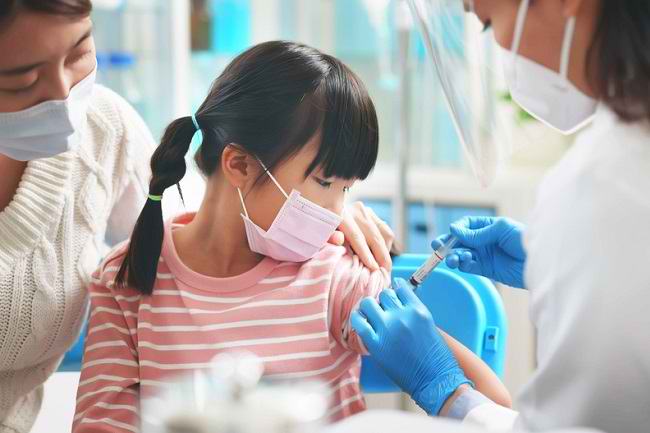Your pet may have been cared for and kept clean at all times. But when you go out of the house, your pet could be infected with leptospirosis from other animals, or from land and water already contaminated.
Leptospirosis is a disease caused by leptospira bacteria, bacteria that can cause infection in animals and humans.

Transmission and Symptoms of Leptospirosis
Humans are at risk for infection with leptospirosis when handling soil or water that has been contaminated with urine or blood of animals infected with leptospira. Leptospira bacteria can enter the body through the mucous membranes or mucous lining of the nose, mouth, eyes, and skin, or in open wounds. You can also become infected with leptospires if you drink water contaminated with these bacteria.
Symptoms that appear in leptospirosis can resemble flu symptoms, such as headache, fever, and muscle aches. In addition, symptoms of leptospirosis can also include loss of appetite, nausea, vomiting, and rash.
Meanwhile, in cases of severe or severe leptospirosis, symptoms may occur in the form of chest pain, cardiac arrhythmias, jaundice (yellowing of the skin and whites of the eyes), swelling of the feet and hands, shortness of breath, and coughing up blood. Severe leptospirosis, also known as Weil's disease, must be treated immediately. If left untreated, it can lead to complications, and even death.
Beware of Leptospirosis in Pets
Leptospirosis is usually spread through the urine of infected animals. This urine can contaminate water and soil. When contaminated water or soil comes into contact with the eyes, mouth, nose, or open wounds of humans, it will cause infection. Ingestion of contaminated water or bites of animals (eg rats) can also cause leptospira infection in humans.
Animal groups that often transmit leptospirosis are pigs, dogs, cows, and some types of rats. Therefore, the people most at risk for infection with leptocypra are those who frequently come into contact with these animals. Likewise with someone who likes to do water sports and is often in a river or lake.
In Indonesia, leptospirosis also often occurs during floods, because the puddles can carry urine from infected animals. What's more, this disease is more common in subtropical and tropical areas, such as in Indonesia.
Animals infected with leptospirosis bacteria can show symptoms such as refusal to eat, diarrhea, fever, vomiting, body stiffness, and weakness. If your pet experiences these conditions, immediately consult a veterinarian. If not treated immediately, these animals can transmit bacteria that can infect months, even years later.
How to Prevent Leptospirosis Infection
The following are ways to treat and prevent the risk of contracting leptospirosis which can be life threatening, both for pets and humans:
- Always wash your hands after coming into contact with animals.
- Do not let your pet chase or eat any stray mice that may be roaming around the house. Rats and other rodents can carry leptospirosis.
- Although it does not protect up to 100%, but still give antileptospirosis vaccines to animals as a preventive measure.
- If your animal looks sick, avoid coming into contact with the animal's urine or blood before you take it to the vet. Wear gloves when you carry or move them.
- After the examination, make sure your animal has taken all of the medicine the doctor has prescribed.
- Use antibacterial cleaning products when cleaning surfaces or floors that may be infected with the urine of an animal diagnosed with leptospirosis.
- Avoid wallowing let alone swimming in lakes or rivers that may be contaminated with the urine of animals infected with leptospirosis.
- Wear closed footwear when walking on dirt or crossing puddles where you're not sure how clean it is.
- Wear protective equipment when touching animals, such as gloves when touching or handling animals. This also applies when you process animal meat. Immediately remove any blood or animal urine stains that may have stuck to your clothes and equipment.
The thing to remember, animals or humans do not necessarily experience certain symptoms after being infected. A person may experience these symptoms within two days to a month after infection occurs. Generally, this disease can be treated with antibiotics. However, in some cases, people with leptospirosis need to receive intensive care in a hospital.









